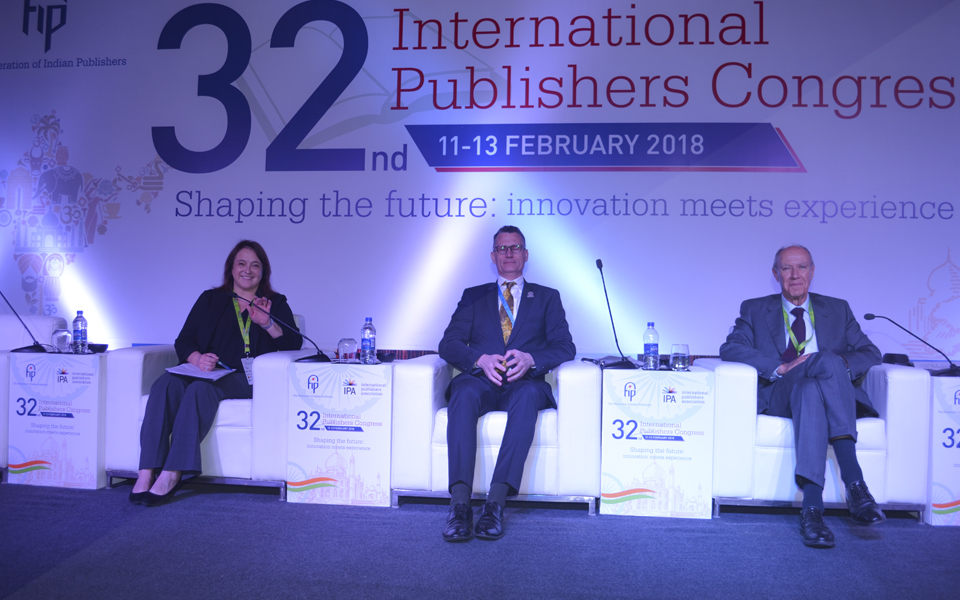Global business models need a redefinition of the line between private and public; the book industry needs to create a functional, global, digital marketplace; and there is a paralysis in law-making internationally that is holding back progress and allowing the tech companies to take the lead. These were among broad observations made by Francis Gurry, Director General of the World Intellectual Property Organisation (WIP) in Switzerland at a session on ‘Shaping the Future of IP in Publishing’ held at the International Publishers Congress in Delhi.
“The whole business model of international cooperation has been disrupted,” he said. “But we do need international cooperation in all areas. There needs to be redefinition of the line between private and public. At the moment, the private sector has more money and information, but we need to pay attention to the opportunities that exist between private and public.”
He talked about systems in publishing having been drawn up in an age that has now gone. “We have the architecture of an analogue system embracing a global, digital world. The tech companies have started in this new world straightaway. Now, there is scepticism among the public about government involvement in publishing. But we have some platforms in other IP areas where governments are involved. Pharmaceutical companies and government bodies share IP with regard to diseases – but here it is for poor countries where is no market incentive.”
He talked about the need for a functional, global, digital marketplace and told Nasher that such a marketplace does exist, “only it’s run by pirates”. He takes encouragement from the signatories to the Marrakech Treaty, the agreement by which publishers provide content and titles for free to be adapted for use by the blind or visual impaired via the Accessible Books Consortium. Thirty-seven countries have now signed up to this, the most recent being Russia in early February.
Maria Pallante, CEO of the Association of American Publishers, also spoke, hitting out at those in the ‘knowledge should be free’ camp. “Those who advocate for weak copyright laws or who seek to circumvent or appropriate copyrighted works to their own end often do so by citing to the public interest. They frame the public interest as though it is separate from the rights of copyright owners or worse yet, that publishers and other copyright owners are an obstacle to progress. This is false. Copyright law and copyright owners are central to the public interest.”
Her speech also included a lovely, poetic quote from the man who started it all. “Publishing today looks a lot like the vision of the original publishing innovator, Johannes Gutenberg,” she said. “He described it like this: ‘It is a press, certainly, but a press from which shall flow in inexhaustible streams…A spring of truth shall flow from it: like a new star it shall scatter the darkness of ignorance, and cause a light heretofore unknown to shine amongst men’”.







